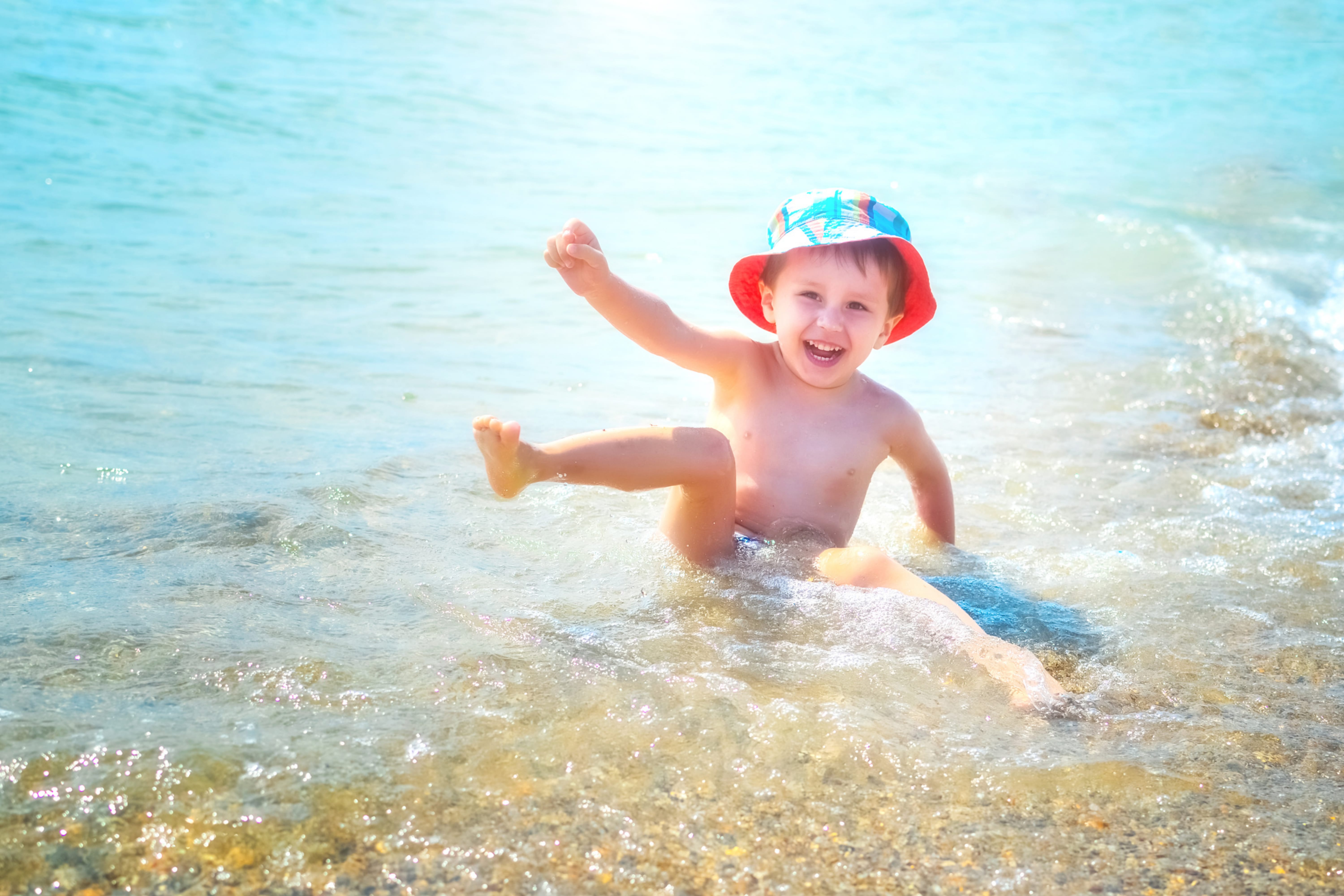The journey after a divorce can be a tumultuous one, filled with a myriad of emotions and challenges. One of these challenges often revolves around how to create positive experiences for the children involved. Vacationing is a time for relaxation, bonding, and creating lasting memories. But post-divorce, it demands an added layer of thoughtfulness to ensure it’s an enriching experience for the little ones.
With the landscape of family dynamics changed, vacations can serve as a reset button, offering fresh experiences and building new traditions. Here, we delve into 20 vacation ideas tailored to create joy, foster connection, and ensure a smooth transition for children post-divorce.
Explore Nature Together
There’s something therapeutic about the great outdoors. Nature has a way of healing, soothing, and bringing people together.
- National Park Adventures: Trek through the vast expanses of national parks, capturing the beauty of Mother Nature. Whether it’s the Grand Canyon or Yellowstone, there’s always a sight to marvel at.
- Beach Retreats: Sun, sand, and the sound of waves crashing. A beach vacation is not only relaxing but offers a plethora of activities from building sandcastles to beach volleyball.
- Camping Under the Stars: Teach your kids the joys of camping, from setting up tents to roasting marshmallows over an open fire. Research shows that camping can help reduce stress and improve sleep.

Dive into Adventure
For those children with boundless energy and a penchant for thrill, adventure vacations might be the ticket.
- White Water Rafting: Navigate the gushing waters as a team. Not only is it fun, but it also teaches kids about teamwork and resilience.
- Zip Lining: Soar through the sky and view the world from above. It’s an exhilarating experience bound to get the adrenaline pumping.
- Mountain Biking: Traverse rough terrains and explore the unexplored. Ensure you pick trails that align with your kids’ expertise.
Cultural Immersion
Exposing children to various cultures enriches their understanding of the world and instills empathy and open-mindedness.
- Museum Hopping: Dive deep into history, art, and science. Museums offer an educative yet fun experience.
- Local Cuisine Sampling: Explore the culinary delights of your vacation spot. This can be an exciting and delicious learning opportunity.
- Craft Workshops: Many places offer local craft workshops where children can learn the art and crafts of the region, making for a memorable souvenir.

Staycations
Sometimes, the best vacations are the ones taken without leaving your city or even your home.
- Backyard Camping: Create the whole camping experience in your backyard with tents, a makeshift bonfire, and some ghost stories.
- Local Landmarks: Be a tourist in your own city. Visit those landmarks and museums you’ve never been to.
- Home Spa Day: A day of pampering with homemade masks, bubble baths, and some relaxation music can be the perfect way to bond and relax
Making Memories
Ultimately, vacations post-divorce should focus on creating beautiful memories, healing past wounds, and fostering a sense of unity and love.
- Photography Tours: Capture moments through the lens. This not only documents your trip but also fosters a love for photography in kids.
- Scrapbooking: Collect souvenirs, pictures, and write about your experiences. Create a vacation scrapbook as a keepsake.
- Journaling: Encourage your kids to pen down their feelings and experiences. This can be therapeutic and offers a wonderful way to reflect.

The Importance of Spending Time with Kids Together After Divorce
Divorce is often a tumultuous period, marked with profound changes and adjustments for the whole family. As parents navigate their way through the new dynamics, children, too, grapple with an altered reality. While each family’s situation is unique, a common thread remains – the importance of ensuring that children feel secure, loved, and valued during this transition.
One potent way to reinforce these feelings is by both parents spending quality time with their children together, even after the divorce. Here’s why this is so crucial.
Reassuring Stability in a Sea of Change
Divorce might end a marital relationship, but it doesn’t end the shared responsibility of parenting. Children often thrive on routine and familiarity. Witnessing their parents separate can introduce a world of uncertainty. By coming together occasionally for family activities or outings, parents can provide a semblance of the stability and consistency that kids crave.
This collective effort sends a clear message: while certain aspects of life may have changed, the love and commitment both parents have for their children remain unshaken.
Modeling Healthy Relationships
Life post-divorce provides a valuable opportunity to model resilience, understanding, and maturity for children. By spending time together as a family, parents can demonstrate that relationships can evolve positively and that disagreements don’t necessarily equate to ongoing animosity. Children learn best by example.
Witnessing their parents engage in collaborative parenting, where they cooperate and communicate effectively, sets a powerful precedent for the youngsters’ future interactions and relationships. It teaches them about forgiveness, empathy, and the importance of maintaining relationships, even when the nature of those relationships changes.

Mitigating Feelings of Guilt
Children, especially younger ones, sometimes internalize the blame for their parents’ divorce. They might harbor feelings of guilt, thinking they played a role in the split. When both parents make an effort to spend time together with their child, it can help dispel this mistaken belief.
It underscores the fact that, even though the marital relationship has ended, both parents are still united in their love and dedication to their offspring. This can be immensely reassuring for children, helping to alleviate any misplaced feelings of culpability.
Facilitating Open Communication
Post-divorce family time can pave the way for open dialogue. Children often have questions, fears, and feelings about the divorce that they might be hesitant to express. Being in a familiar and comfortable setting with both parents can encourage them to voice their concerns. It’s an opportunity for parents to listen, provide clarity, and offer reassurance. This kind of communication is paramount for the emotional well-being of the child.
Creating New Memories
Just because the marriage has ended doesn’t mean that family memories have to halt. Post-divorce is a chance to establish new traditions and create cherished memories that children will look back on fondly. Whether it’s a monthly dinner, a yearly vacation, or just spontaneous outings, these moments can serve as positive milestones in the evolving family journey.
Embracing a Broader Support System
Children benefit immensely from a robust support system. By continuing to engage in activities together, divorced parents can ensure that their child has a comprehensive network to lean on. This united front can be especially beneficial during milestones in a child’s life, such as graduations, birthdays, or other significant events. It shows the child that, regardless of the circumstances, they have a cohesive unit cheering them on.
Final Thoughts
Divorce, without a doubt, introduces challenges. However, it also brings about opportunities – opportunities to redefine family structures, strengthen bonds, and prioritize the emotional well-being of the children involved. While it might not always be feasible for divorced parents to spend time together due to various reasons, those who can find a way to do so stand to offer their children a powerful blend of stability, understanding, and unwavering love.
In essence, spending time with kids together post-divorce isn’t about rekindling past relationships; it’s about forging ahead with a renewed focus on what’s genuinely important – the happiness and well-being of the children. It’s a testament to the unbreakable bond of family, proving that love, in its many forms, endures and adapts.
Helping Kids Navigate Divorce While Maintaining Strong Relationships with Both Parents
Divorce, while tough on adults, can be especially challenging for children. They’re thrust into a new world, with changes in living situations, routines, and sometimes even schools. Amidst this, it becomes essential for parents to ensure that their children maintain healthy relationships with both of them.
With careful planning, clear communication, and a lot of empathy, it’s possible to help kids not only navigate this challenging phase but also foster positive parent-child bonds.
Open and Honest Communication
- 1. Address Concerns Head-On: Kids often have numerous questions and fears about divorce. Create a safe space where they can voice their feelings without judgment. It’s essential for both parents to explain that the divorce isn’t the child’s fault and to provide reassurances of their unwavering love.
- 2. Use Age-Appropriate Language
Tailor your discussions according to the child’s age and comprehension level. While teenagers might benefit from a more detailed explanation, younger children may need simpler terms and repeated reassurance.
Maintain Consistency
- 1. Stick to Routines: Children find comfort in predictability. Try to maintain their regular routines, such as bedtime stories or weekend activities. This stability can act as an anchor during tumultuous times.
- 2. Coordinate with Your Ex: Both parents should aim for consistency in rules and routines across both households. This prevents confusion and provides the child with a sense of continuity.
Encourage Expression
- 1. Offer Emotional Outlets: Encourage kids to express their feelings, whether it’s through talking, journaling, art, or therapy. This can aid in processing emotions.
- 2. Validate Their Feelings: Every child will react differently. Some might feel anger, others sadness, and some even relief. Whatever their feelings, validate them. Let them know it’s okay to feel the way they do.
Prioritize the Child’s Needs
- 1. Avoid Negative Talk: Children shouldn’t be placed in the middle of parental disputes. Avoid speaking negatively about the other parent in their presence. This helps the child feel more secure in their relationship with both parents.
- 2. Stay Involved: Both parents should remain involved in their child’s life. Attend school events, participate in hobbies, and be present for milestones. This reinforces your commitment and love to your child, irrespective of the marital status.
Consider Professional Help
- 1. Seek Counseling: Therapists or counselors specializing in child psychology or family therapy can provide invaluable guidance. They can offer coping mechanisms tailored to the child’s needs.
- 2. Engage in Co-Parenting Workshops: These workshops provide divorced couples with tools and strategies to navigate post-divorce parenting more effectively, ensuring the child’s well-being remains front and center.
Reinforce the Unchanged Love
- 1. Regular Reassurances: Regularly remind your child that both parents love them, and this love remains unchanged despite the divorce.
- 2. Quality Time: Dedicate time for bonding. Activities, trips, or simple home-cooked meals together can help reinforce the bond and offer the child the attention and love they crave.
Foster a New Normal
- 1. Establish New Traditions: While some traditions might remain unchanged, it’s also a time to create new ones. These can be activities unique to each parent and child, fostering individual connections.
- 2. Be Adaptable: Understand that there will be challenges. Be prepared to adapt and make changes as needed, always prioritizing the child’s emotional well-being.
Divorce, with its myriad challenges, is also an opportunity. It’s a chance for parents to rise above their differences and focus singularly on the well-being of their child. With empathy, patience, and open communication, it’s entirely possible for children to navigate the complexities of divorce and maintain strong, loving relationships with both parents.
Remember, it’s not the situation but the approach that defines the outcome. In this challenging journey, the child’s well-being should always be the guiding light, steering decisions and actions towards a healthier, happier future.
In Conclusion
Vacationing post-divorce with kids might initially seem daunting, but with a little planning and a lot of love, it can be a rejuvenating experience for all involved. From nature retreats to staycations, there’s an abundance of choices available. Remember, it’s not about the destination but the memories you create along the way. Safe travels!
